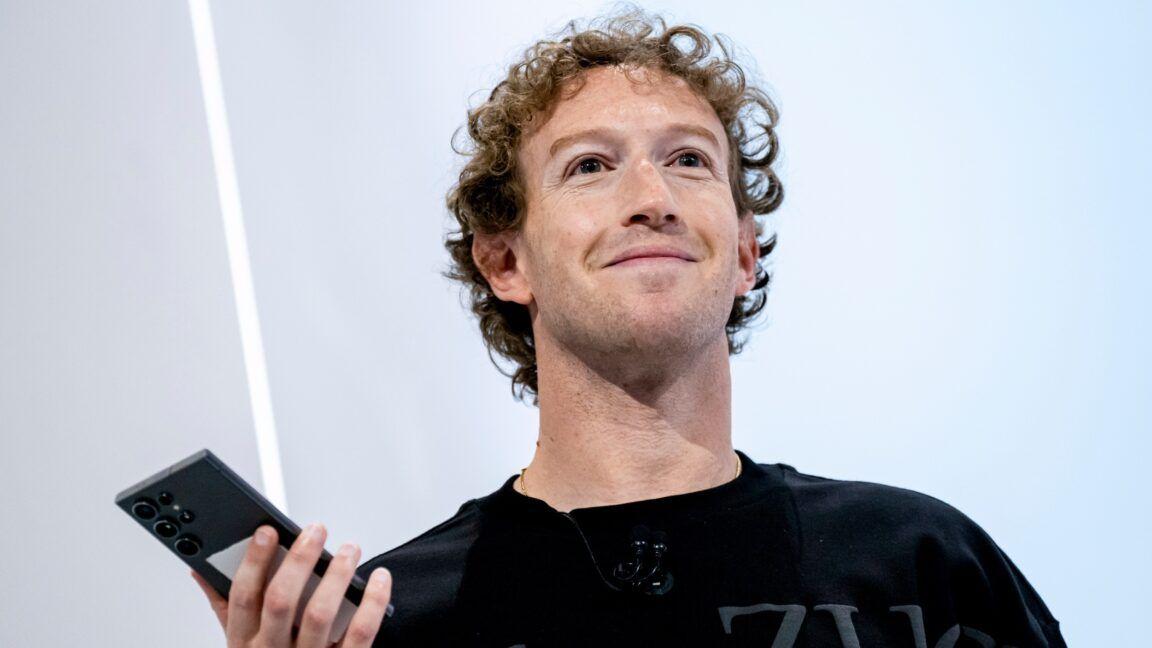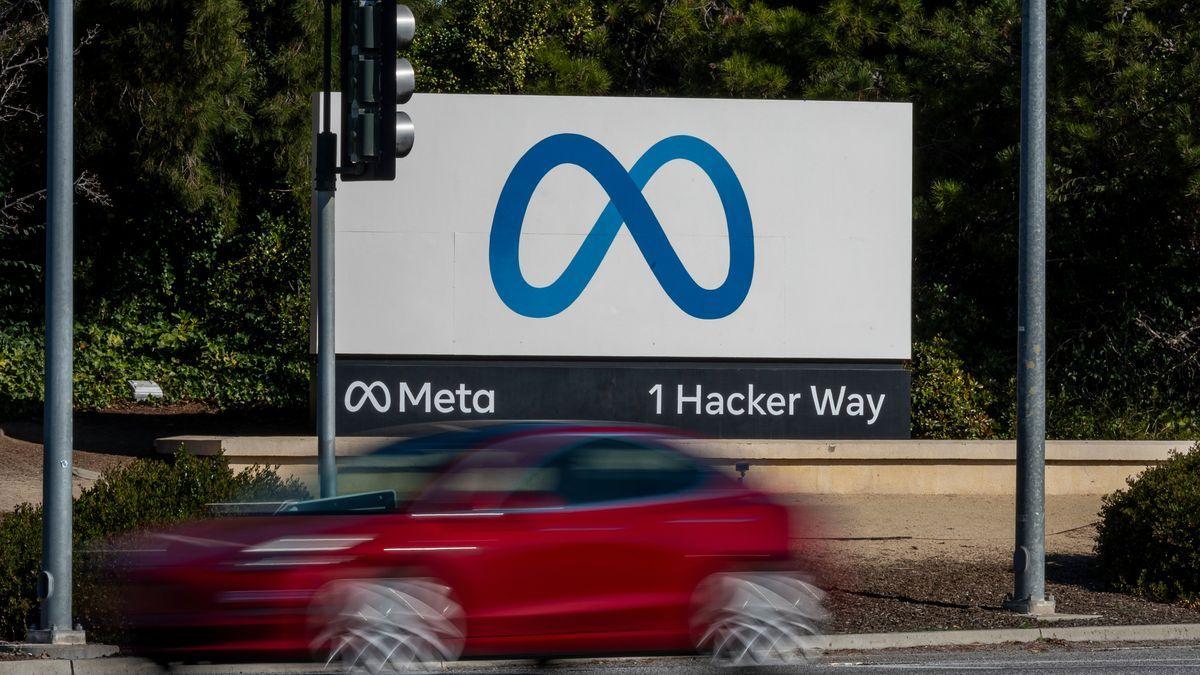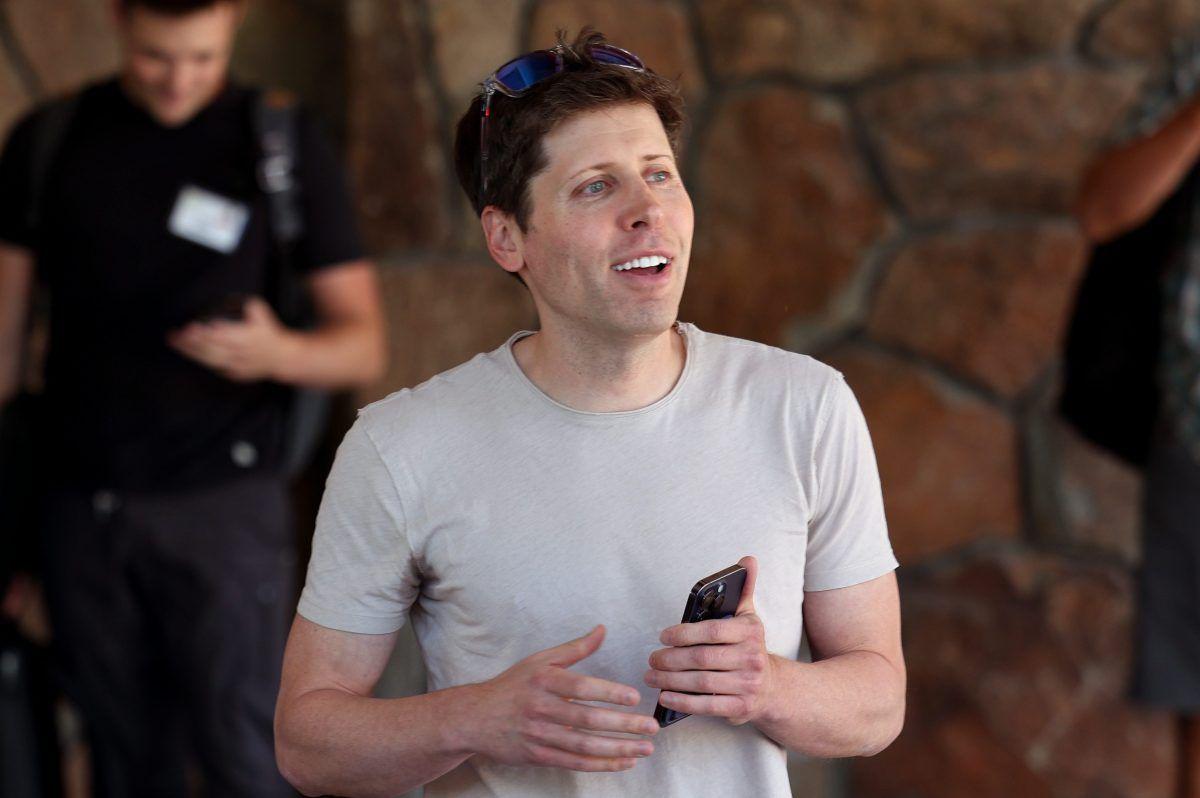Meta's AI Talent Hunt Sparks Internal Tensions and High-Profile Departures
2 Sources
2 Sources
[1]
Mark Zuckerberg's Costly AI Talent Hunt Sparks Backlash As Million-Dollar Recruits Quit, Secretive 'TBD Lab' Breeds Tension At Meta: Report - Meta Platforms (NASDAQ:META)
Meta Platforms Inc. META faces mounting internal tensions after CEO Mark Zuckerberg's artificial intelligence recruitment drive sparked employee departures and compensation disputes. Elite AI Unit Creates Status Divisions The company's secretive TBD Lab operates from a restricted-access area near Zuckerberg's Menlo Park desk, housing Meta's most elite AI researchers, reported The Wall Street Journal. The unit's members remain invisible on internal organization charts, while other employee names appear publicly, creating new status distinctions within the $2 trillion company. At least 21 recruits joined from OpenAI, with additional hires from Alphabet Inc. GOOGL GOOG, Apple Inc. AAPL and Elon Musk's xAI. However, several high-profile departures have already occurred, including AI researcher Rishabh Agarwal, who left for Periodic Labs after declining in-person work requirements, as reported WSJ, citing sources. Meta did not immediately respond to Benzinga's request for comment. Million-Dollar Recruits Jump Ship ChatGPT co-creator Shengjia Zhao initially resigned within a week of joining Meta in June, requiring the company to triple his compensation and grant him chief scientist status to retain him, WSJ reported, citing sources. Former OpenAI researchers Avi Verma and Ethan Knight recently returned to their previous employer. The departures prompted Meta to implement a hiring freeze last month, requiring Chief AI Officer Alexandr Wang's approval for exceptions. Wang joined Meta through the company's $14.3 billion investment in Scale AI. See Also: Alibaba Hong Kong Shares Rise As 1-Trillion-Parameter Qwen-3-Max AI Model Debuts -- To Challenge OpenAI, Google Existing Employees Demand Raises Internal tensions escalated as existing employees lobbied for compensation increases amid the influx of million-dollar packages for newcomers. Some infrastructure team members leveraged competing offers from former OpenAI executive Mira Murati's startup to secure transfers to TBD Lab and salary bumps. "If you don't lay the groundwork culturally for bringing in these stars, you're going to end up burning a bunch of them out and pissing them off," said Laszlo Bock, former Google people operations head, according to WSJ. Restructuring Follows Llama 4 Disappointment The talent war intensified after Meta's Llama 4 model received criticism for underwhelming performance compared to Chinese rival DeepSeek. Zuckerberg restructured the AI division for the fourth time in six months, dissolving the AGI Foundations team and creating four specialized units, including TBD Lab. Meta's 2025 AI capital expenditures are projected to reach $72 billion, up $30 billion from 2024. The company competes against industry-wide AI infrastructure spending estimated at $250 billion through 2026, with approximately 2,000 researchers globally capable of developing foundational AI models. Read Next: Peter Andersen Slams Apple's Siri And AI Strategy, Investor Warns iPhone 17 Updates No Substitute For Real Innovation: 'An Embarrassment' Disclaimer: This content was partially produced with the help of AI tools and was reviewed and published by Benzinga editors. Photo courtesy: Frederic Legrand - COMEO / Shutterstock.com METAMeta Platforms Inc$764.381.61%Stock Score Locked: Edge Members Only Benzinga Rankings give you vital metrics on any stock - anytime. Unlock RankingsEdge RankingsMomentum82.02Growth85.35Quality89.71Value25.33Price TrendShortMediumLongOverviewAAPLApple Inc$233.54-1.82%GOOGAlphabet Inc$240.202.58%GOOGLAlphabet Inc$239.852.48%Market News and Data brought to you by Benzinga APIs
[2]
Meta's AI 'dream team' is sparking staff resentment, pay wars and...
Meta's blitz to lure star AI scientists with multi-million-dollar paydays has backfired, sparking resentment among longtime staff and a wave of high-profile defections -- even from some of the recruits Mark Zuckerberg personally courted, according to a report. Meta has offered extraordinarily lucrative pay packages to lure top AI researchers, with some deals reaching up to $250-$300 million over four years, and select researchers reportedly receiving as much as $100 million in the first year through a mix of cash, stock, and other incentives. Inside the company's Menlo Park, Calif. headquarters, some of the star hires that make up the new "TBD Lab" sit in a badge-restricted zone near Zuckerberg's desk, its members' names hidden from the internal directory. The secrecy, plus the cash lavished on outsiders, has fueled grumbling across the rank-and-file as employees fight for limited resources under a hiring freeze, the Wall Street Journal reported. "This is yet another series of false, exaggerated or mischaracterized claims," a Meta spokesperson told The Post. "We'd have thought this level of navel-gazing was beneath the Wall Street Journal, but apparently we were wrong." The Post has sought comment from the Journal. News Corp, parent company of The Post, also owns Dow Jones and its subsidiary, the Journal. At least one recruit granted millions quit anyway, complaining others were still paid "multiples more." Others, including hires from blue chip firms such as OpenAI, xAI and Scale AI, have already left, the Journal reported. One top scientist nearly bolted back to OpenAI just a week after joining before Meta scrambled to keep him with a lofty title and a massive pay boost, according to the Journal. Among the casualties are Avi Verma and Ethan Knight, new hires from OpenAI and xAI, jumped ship back to OpenAI, the Journal reported. Rishabh Agarwal, a Toronto-based researcher hired in April after directly appealing to Zuckerberg, resigned when told he had to work in-person and instead joined Periodic Labs, a startup launched by a former OpenAI executive. Ruben Mayer, a product manager poached from Scale AI, also left, citing personal reasons, according to the Journal. The biggest drama centered on Shengjia Zhao, a co-creator of ChatGPT. Within a week of joining Meta, Zhao had signed paperwork to return to OpenAI. Only a last-minute intervention -- Meta handing him the title of chief scientist and what the Journal reported was a tripling of his pay -- kept him in Menlo Park. In a statement to the Journal, Meta disputed that his compensation was tripled but admits his role was formalized once the team took shape. "Shengjia co-founded MSL and has been our scientific lead since day one," a Meta spokesperson told The Post. "We formalized his role once our recruiting had ramped and the team had taken shape." Meta has showered recruits with huge packages, luring more than 50 AI experts this summer alone. Of those, 21 of the new hires were poached from OpenAI, more than a dozen from Google, plus others from Apple and Elon Musk's xAI. But the open checkbook created a backlash inside Meta's existing workforce, according to the Journal. Longtime engineers began leveraging competing offers to wring raises and promotions. In July, a handful of staffers from Meta's AI infrastructure team snagged offers from former OpenAI executive Mira Murati's startup, Thinking Machines Lab. When they brought the offers to Meta, their compensation was bumped and they were transferred to the TBD Lab. Meta insists those moves were planned regardless of outside offers, but the timing raised eyebrows. "It's classic talent management 101 -- if you don't lay the cultural groundwork, you'll burn these stars out and waste millions," said Laszlo Bock, former head of HR at Google. The TBD Lab's exclusivity has become a flashpoint. Employees need special badge access to enter, and unlike every other group in the AI division, its roster isn't visible on the company's internal organization chart. That secrecy, paired with reports of inflated pay packages, created the impression of a privileged caste inside Meta. Other teams complain they are starved of computing power, and managers say hiring is so tightly controlled that even filling vacant roles requires personal sign-off from Meta's top AI leadership. The dysfunction at Meta mirrors the AI sector's broader frenzy. In August, OpenAI handed out one-time bonuses worth millions to keep staff from leaving. Apple lost a string of key AI developers this summer to rival labs. At Safe Superintelligence, the startup co-founded by OpenAI's Ilya Sutskever, employees are reportedly discouraged from even listing the company on LinkedIn, to avoid becoming recruitment targets. For researchers, the poaching wars have made it easier to bounce between labs, driving up compensation and creating a revolving door of talent. Still, even with Zuckerberg spending millions to create a fortress-like AI lab, insiders question whether Meta can keep its stars from bolting again.
Share
Share
Copy Link
Meta's aggressive recruitment of top AI researchers with multi-million dollar packages has led to internal conflicts and departures. The company's secretive TBD Lab and compensation disparities are causing resentment among existing employees.

Meta's AI Talent Acquisition Strategy
Meta Platforms Inc., under CEO Mark Zuckerberg's direction, has embarked on an ambitious AI talent acquisition strategy, offering extraordinarily lucrative compensation packages to top researchers. Some deals reportedly reach up to $250-$300 million over four years, with select researchers receiving as much as $100 million in the first year through a mix of cash, stock, and other incentives
2
. This aggressive recruitment drive has successfully lured at least 21 recruits from OpenAI, with additional hires from Alphabet Inc., Apple Inc., and Elon Musk's xAI1
.The Secretive TBD Lab
At the heart of Meta's AI initiative is the secretive TBD Lab, operating from a restricted-access area near Zuckerberg's Menlo Park desk. This elite unit houses Meta's most prestigious AI researchers, whose names remain invisible on internal organization charts, creating new status distinctions within the company
1
. The exclusivity of the TBD Lab has become a flashpoint, with employees needing special badge access to enter, further fueling the perception of a privileged caste within Meta2
.High-Profile Departures and Retention Challenges
Despite the lucrative offers, Meta has faced several high-profile departures. AI researcher Rishabh Agarwal left for Periodic Labs after declining in-person work requirements. ChatGPT co-creator Shengjia Zhao initially resigned within a week of joining Meta, requiring the company to triple his compensation and grant him chief scientist status to retain him
1
. Other departures include Avi Verma and Ethan Knight, who returned to OpenAI, and Ruben Mayer, a product manager poached from Scale AI2
.Related Stories
Internal Tensions and Compensation Disputes
The influx of high-paid newcomers has sparked internal tensions, with existing employees lobbying for compensation increases. Some infrastructure team members leveraged competing offers from former OpenAI executive Mira Murati's startup to secure transfers to TBD Lab and salary bumps
1
. The open checkbook approach has created a backlash inside Meta's existing workforce, with longtime engineers using competing offers to negotiate raises and promotions2
.Restructuring and Future Challenges
In response to these challenges and the underwhelming performance of Meta's Llama 4 model compared to Chinese rival DeepSeek, Zuckerberg restructured the AI division for the fourth time in six months. This restructuring dissolved the AGI Foundations team and created four specialized units, including TBD Lab
1
. Meta's 2025 AI capital expenditures are projected to reach $72 billion, up $30 billion from 2024, as the company competes in an industry-wide AI infrastructure spending estimated at $250 billion through 20261
.References
Summarized by
Navi
[2]
Related Stories
Meta's AI Talent Exodus: Turmoil at Superintelligence Lab Amid Aggressive Hiring and Restructuring
27 Aug 2025•Technology

Meta's $1.25 Billion AI Talent Offer Rejected: Escalating War for Top AI Researchers
21 Jul 2025•Business and Economy

Meta's AI Strategy Shift: From Open-Source Champion to Talent Poacher
15 Jul 2025•Technology

Recent Highlights
1
ByteDance's Seedance 2.0 AI video generator triggers copyright infringement battle with Hollywood
Policy and Regulation

2
Demis Hassabis predicts AGI in 5-8 years, sees new golden era transforming medicine and science
Technology

3
Nvidia and Meta forge massive chip deal as computing power demands reshape AI infrastructure
Technology





